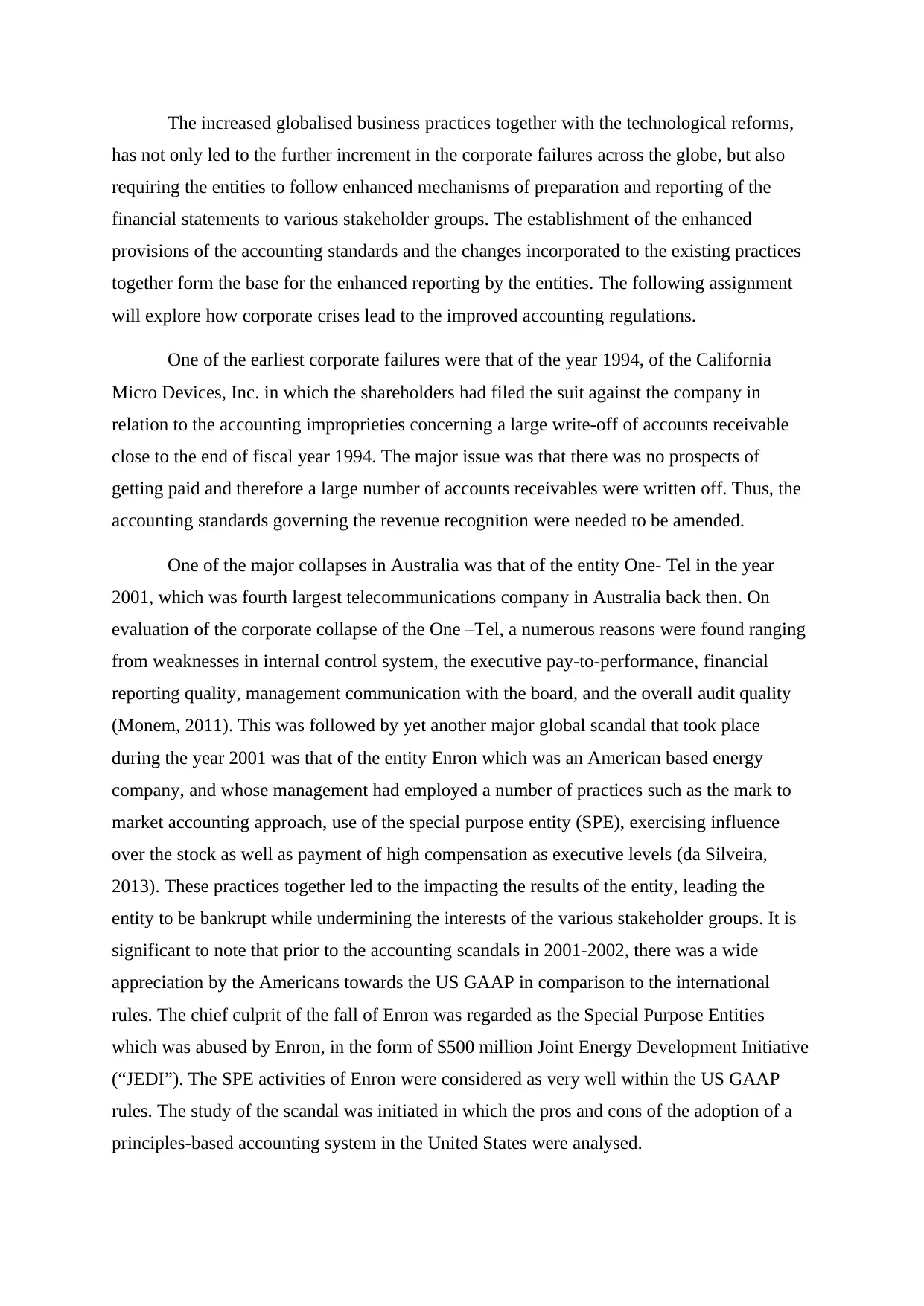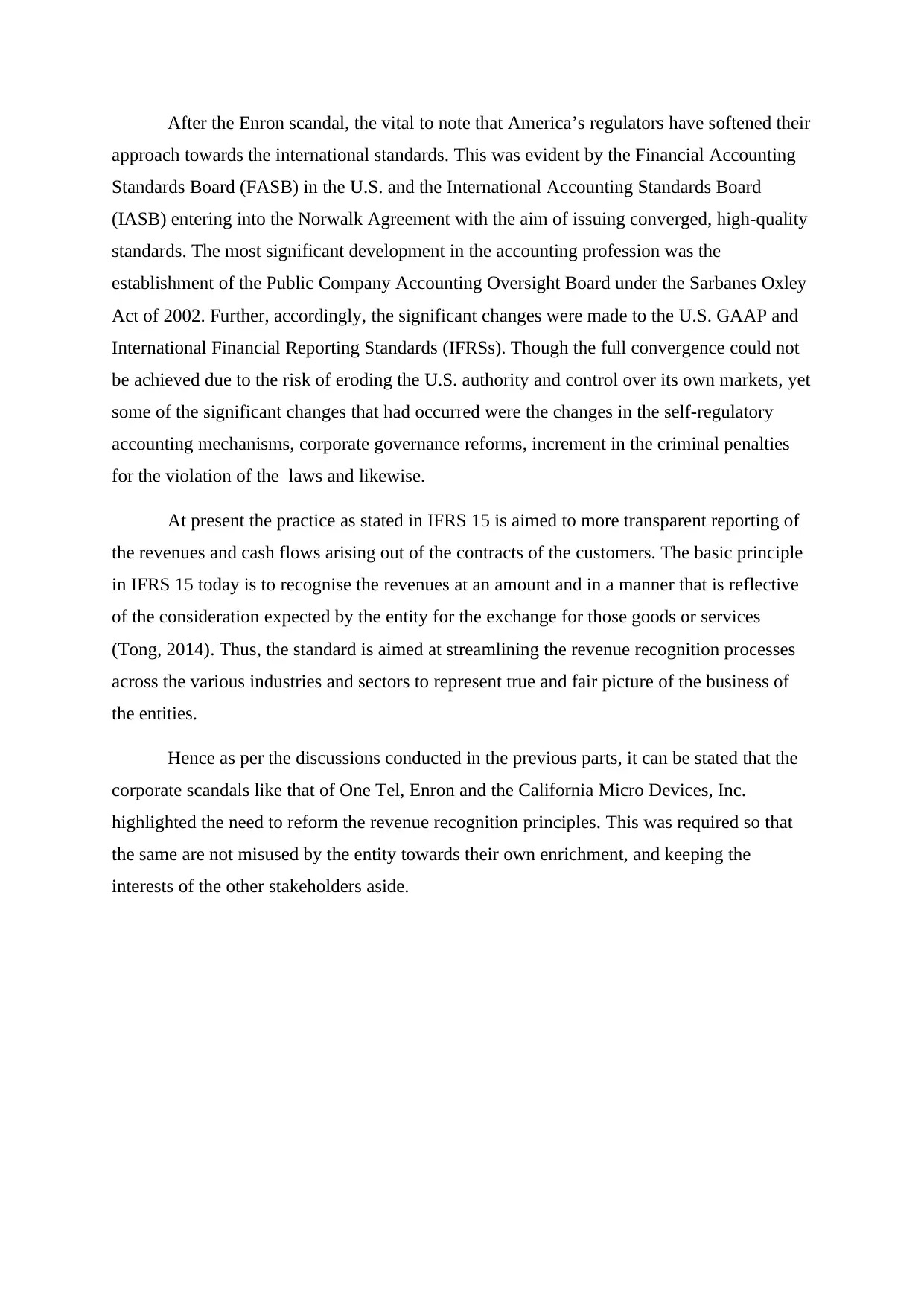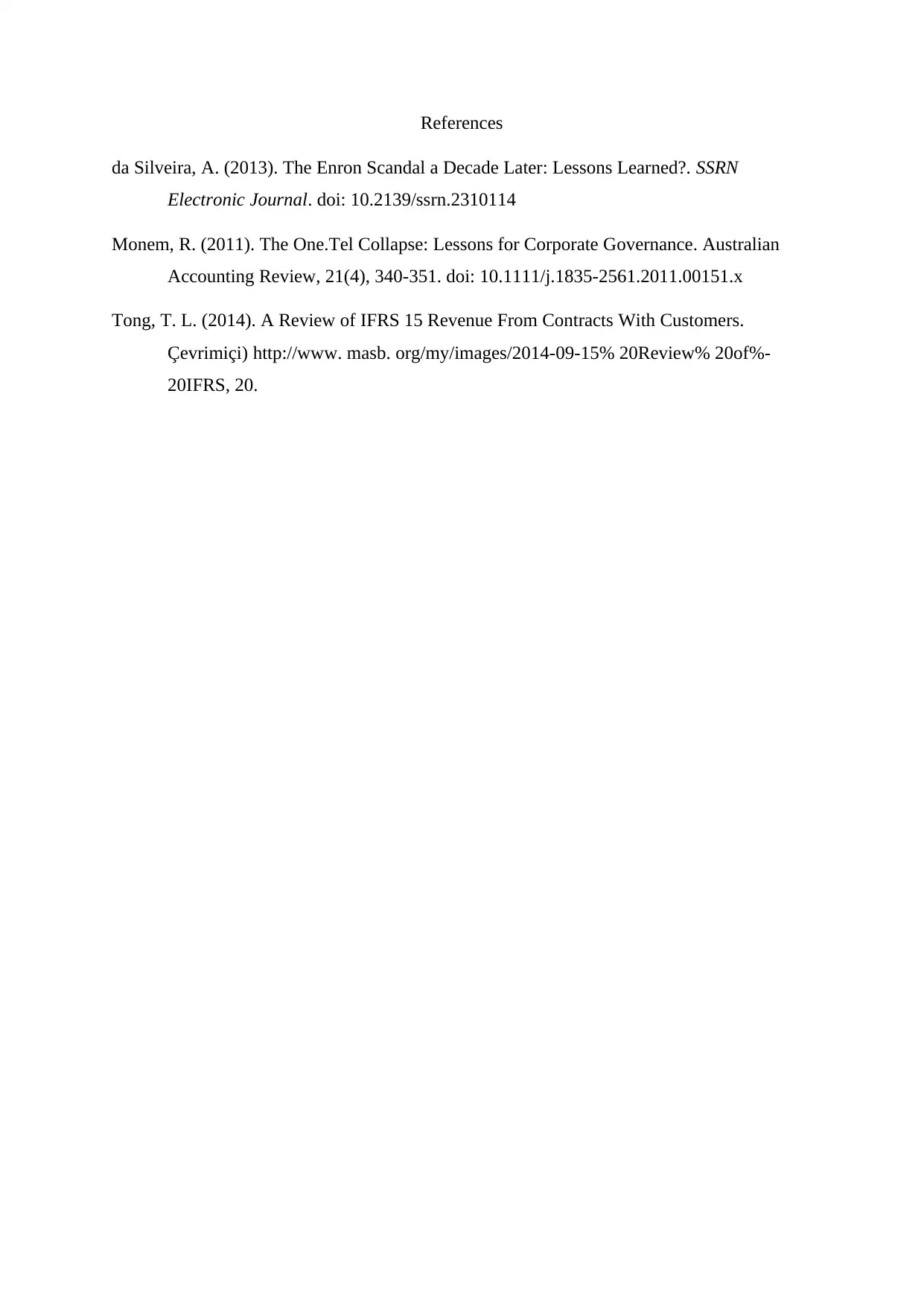ACCT20074: Corporate Crises and Accounting Regulations Report
VerifiedAdded on 2022/12/27
|3
|928
|57
Report
AI Summary
This report examines the relationship between corporate crises and the evolution of accounting regulations and standards. It explores how major corporate failures, such as those of California Micro Devices, One-Tel, and Enron, have prompted significant changes in financial reporting practices. The report highlights the weaknesses in existing regulations and the need for enhanced transparency and accountability. The analysis includes the impact of these crises on revenue recognition principles, the role of special purpose entities (SPEs), and the convergence of U.S. GAAP and IFRS. The establishment of the Public Company Accounting Oversight Board (PCAOB) and the changes introduced by the Sarbanes-Oxley Act of 2002 are also discussed. The report concludes by emphasizing the importance of continuous improvement in accounting standards to mitigate the risks associated with corporate failures and to protect the interests of stakeholders. The evolution of IFRS 15, which aims to streamline revenue recognition processes across various industries, is also discussed, as a result of the corporate failures.
1 out of 3










![[object Object]](/_next/static/media/star-bottom.7253800d.svg)